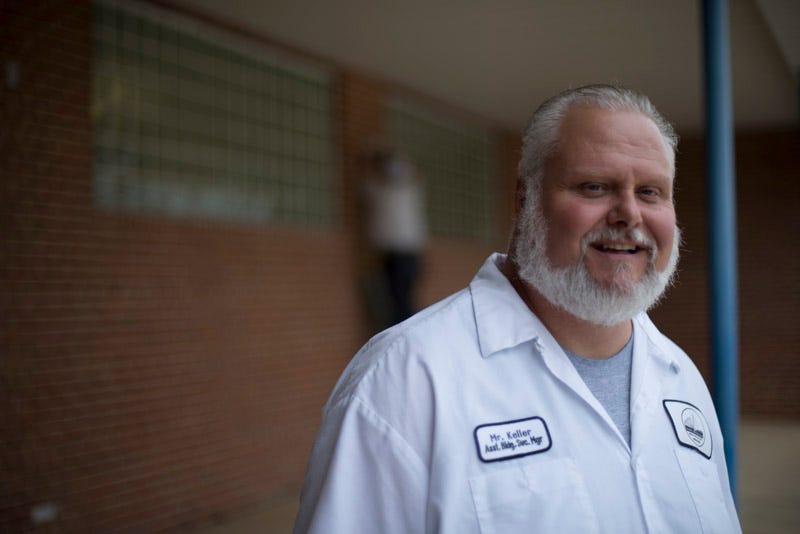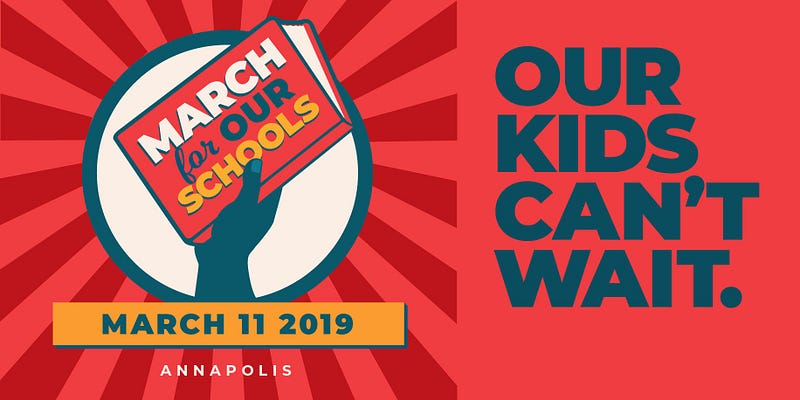Why the March for Our Schools Matters for Education Support Professionals
Our fight for a living wage depends on more funding

Hiring thousands more educators so students get more individualized support. Expanding career technical education and pre-kindergarten. Pay raises for teachers and certificated staff. There’s a lot to like in the state’s plan for what a new school funding formula could support.
But we need to do more — specifically for education support professionals (ESP), the non-certificated school staff who play a key role in creating a safe, clean, healthy, and supportive learning environment for our students. They are our bus drivers, food and building service workers, technicians, clerical workers, paraprofessionals, and more.
Yet right now, more than 24,000 ESP — about 20% of the people who work in Maryland’s public schools — don’t make a living wage. We must right that wrong.
Here’s our path to making it happen (spoiler: the March for Our Schools plays a big role).

ESP Living Wage Bill of 2019
MSEA worked with former educators Del. Eric Ebersole (D-Baltimore/Howard-District 12) and Sen. Joanne Benson (D-Prince George’s-District 24) to introduce House Bill 479/Senate Bill 424 that would create a statewide minimum salary for all school staff.
For higher cost-of-living counties (Anne Arundel, Baltimore City, Baltimore County, Howard, Montgomery, and Prince George’s), the state will require annual wages of at least $36,000 when fully implemented. For lower cost-of-living counties, the state will require annual wages of at least $31,500 when fully implemented. From that point on, the minimum floor will rise with inflation according to the Consumer Price Index.
And in all counties, this only establishes a minimum — local unions will still have collective bargaining power to go above and beyond that threshold.

Fight for $15
Just like last year, MSEA is working with a coalition including other unions, community groups, and religious leaders fighting for a $15 minimum wage in Maryland (House Bill 166/Senate Bill 280). For ESP in Maryland schools, success means a guaranteed $15/hour wage when it is fully phased in.
You’ve probably heard how workers have joined grassroots campaigns where the Fight for $15 has already paid off. Now in California, New York, New Jersey, and in some cities, $15/hour is a reality or is being phased in. More than 17 million workers across the country have fought for and won raises in the fight to increase the minimum wage.
Both of these bills are pathways towards meaningfully raising salaries for ESP across Maryland. And while passing these bills is important, they require funding to actually provide those living wages for ESP across the state who deserve them. That’s where the March for Our Schools comes in.

The March for Our Schools
The state is looking at adding $3.8 billion annually in new education funding, phased in over 10 years. We can begin that phase-in this year, and we can do it in a big way. More than a billion dollars is at stake, with legislators talking about adding $200 million to $325 million in new funding for this year and taking action now to commit $750 million in new funding for next year.
That funding can go towards a living wage for ESP (and yes, expanded pre-k and CTE, more staff, and all the other great things we mentioned at the beginning of the article). This can be a gamechanger. For years, we’ve had budgets that haven’t kept up thanks to an outdated funding formula that’s leaving our schools underfunded by $2.9 billion annually. And all too often, ESP have been among those shortchanged by insufficient funding levels.
24,700 education support professionals in Maryland DO NOT make a living wagemseanewsfeed.com
It’s time to end this underfunding— for students, for schools, for teachers, and for ESP. It’s up to us to show up and speak out for increased funding and a living wage for ESP, and the March for Our Schools in Annapolis on March 11 is the perfect opportunity to do so.
If we’re successful and can win these transformational new levels of funding, they can help fund living wages for ESP, whether thanks to a statewide mandate through the passage of the Living Wage Bill of 2019 or the Fight for $15 — or through effective local bargaining campaigns. Either way, it puts the funding in place to make it happen.
If you’re an ESP who doesn’t make a living wage — then join us on March 11 to fight for one. If you’re an ESP who does make a living wage, or a teacher, or certificated staff— then join us on March 11 to fight for our ESP colleagues who are vital to the success of our schools and unquestionably deserve the respect, dignity, and resources that a living wage brings.


